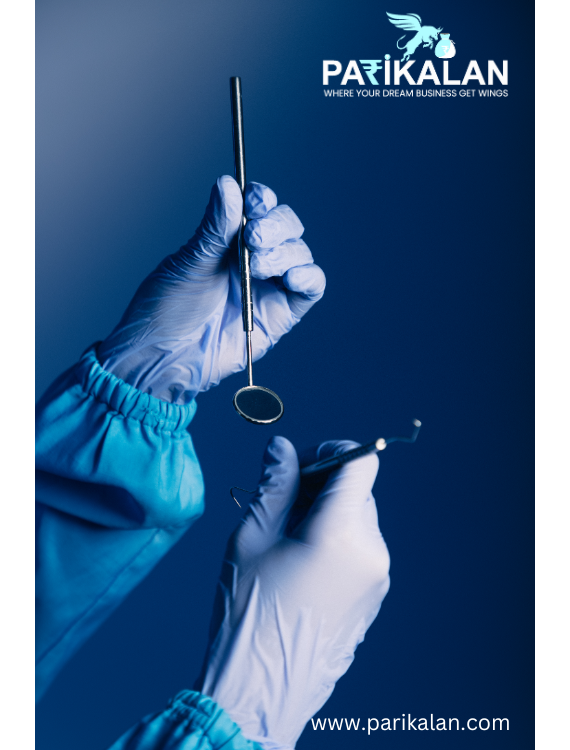CE Marking for Startups: What New Businesses Need to Know for a Bright Future
CE mark is an essential certificate for companies looking to enter the European market. It ensures that the product meets the vital health and safety standards set within the European Union. For companies that are just starting out, the process of learning about and getting CE certification can be a daunting task but building confidence with customers and ensuring that the product is safe for use is crucial. This blog will guide you through the basic principles of CE certification, its importance and process for receiving it. If you follow this guide, entrepreneurs can traverse the CE mark-making process and grow their reach across Europe. Whether you’re just beginning or looking to expand, CE marking is essential to success.
Get Business Development Kit
Understanding the CE Marking Certification
Products that need CE Marking
CE certification is required for many items sold in the European Economic Area (EEA). This includes medical equipment, machines, electronic equipment, toys, construction materials, personal protective equipment, and more. To be legally sold in the EEA, all products subject to particular EU guidelines or directives should have the CE label.
Legal Issues and Benefits for Startups
CE marking ensures compliance with EU health, safety, and environmental standards for companies just starting out. Legally, it permits freedom of movement of goods across the EEA. Infractions can lead to the issuance of fines, product recalls, or even bans. The advantages include
- improved trust among consumers,
- access to market competitive advantage, and
- a solid base to grow within market growth in the European market.


The reason CE Marking is Crucial for Startups
CE certification is essential for new businesses because it provides access to the huge European Economic Area (EEA) market, which allows the sale of products across 30 countries with no limitations. This certification guarantees that products comply with stringent EU health safety, environmental, and health standards, which help build consumer confidence and trust.
CE certification opens the international trade and development market for new businesses, providing a competitive advantage. It also indicates the company’s commitment towards quality and conformity with rules and regulations, which can be appealing to investors and business partners. Without CE certification, businesses could be subjected to legal sanctions as well as recalls of products and barriers to entering the European market, which can limit their chances of growth and openings to enter the market.
Are You Looking To Enhance Your Business Credibility And Quality Standards ?
Methods to obtain CE Certification for your Startup
- Look up the relevant directives: Based on their purpose and nature of application, you can determine what EU guidelines and directives apply to your products.
- Review the Product Requirements: Find out and document the most crucial environmental, health, and safety requirements that your product must comply with.
- Choose your Conformity Assessment method: Based on the nature of the product and its associated risks, select the proper method for assessing conformity (self-assessment and third-party validation).
- Do a Risk Assessment : Perform an in-depth risk evaluation to identify potential risks and ensure that your product complies with safety requirements.
- Check Your Product’s Quality: Perform the required tests and assessments to verify that the product complies with the applicable EU rules and norms.
- Create Technical Documentation: Develop a technical document that contains the product’s specifications, manufacturing information, manufacturing data, testing results, risk assessments, and evidence of compliance.
- Draft an EU Declaration of Conformity: Sign and date the EU Declaration of Conformity to confirm that your product complies with all applicable regulations and standards.
- Apply an item with the CE Marking: Be sure to apply your CE label to make it visible and legible.
- Keep Compliance in Mind: Continuously check and revise your documentation and product to align with any EU directives or standards modifications.
- Work With Notified Bodies (if needed): If required, collaborate with notified bodies for third-party testing or certification and compliance certification.
- Prepare in advance for Market Surveillance: Keep detailed documents and evidence of conformance to ensure you are prepared for any potential market surveillance or inspections.
- Give User Instructions and Warns : Incorporate comprehensive instructions and safety and security warnings. Include documentation to assist the end-users.
- Keep the Documentation available: Ensure that all documentation related to the product and the Declaration of Conformity are readily available for at least ten years after the product is put on the market.
- Stay current on regulatory updates: Review and stay current on any changes to EU directives and regulations to ensure compliance.
Documents Required for Applying ISO 9001 Certification

Company / Service Govt. Registration Proof

Valid Letter Head including Address

Quality Manual

Internal Audit/MRM
Common Issues as well as Solutions to Startups
Startups typically need help with CE marking, including a lack of resources and experience that makes it challenging to navigate complicated EU regulations. The cost of conformity assessment and product testing can be costly for budgets. In addition, knowing the directives that apply and preparing technical documentation can be a challenge. To overcome these issues, Startups should begin this process as early as possible, seek advice from consultants and Notified Bodies and invest in education. Utilizing online sources and CE mark-making software could help streamline the process of preparing documents and ensuring compliance. Connecting with peers in the industry and joining relevant associations could give valuable insight and help startups efficiently obtain CE marking and enter the European market.
Conclusion
The acquisition of CE certification is a crucial process for businesses that want to enter the European market. It assures the company complies with health, safety and environmental regulations. It can also open doors to a broad audience and boost a brand’s credibility. By understanding and navigating the CE labeling process, new businesses can demonstrate their dedication to safety and quality and gain an advantage on the EEA.
For startups that require help for assistance, Parikalan Consultancy OPC Pvt. Ltd. provides complete services that will ease the CE marking procedure. From identifying relevant directives and conducting risk assessments to creating technical documentation and communicating with Notified Bodies, Parikalan Consultancy offers expert advice at each step. Their customized support for startups helps them overcome common obstacles and ensures the smoothest and most efficient route toward CE mark compliance. Working with Parikalan Consultancy enables startups to successfully navigate the regulations and introduce their products to a European market.

